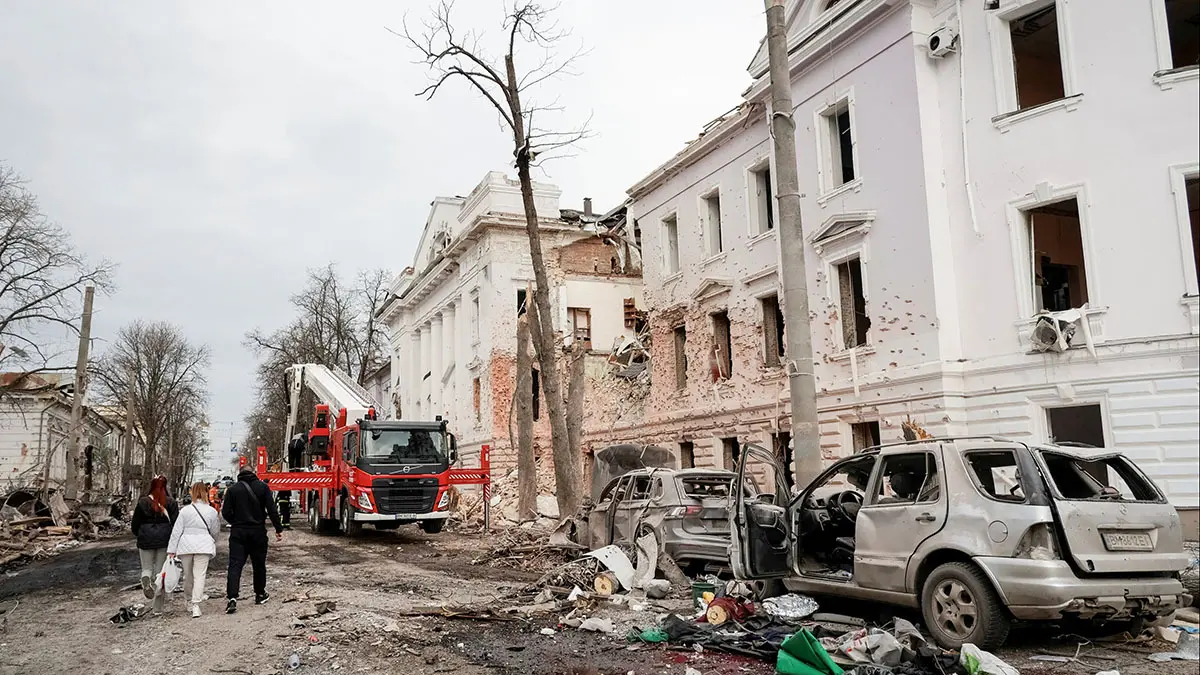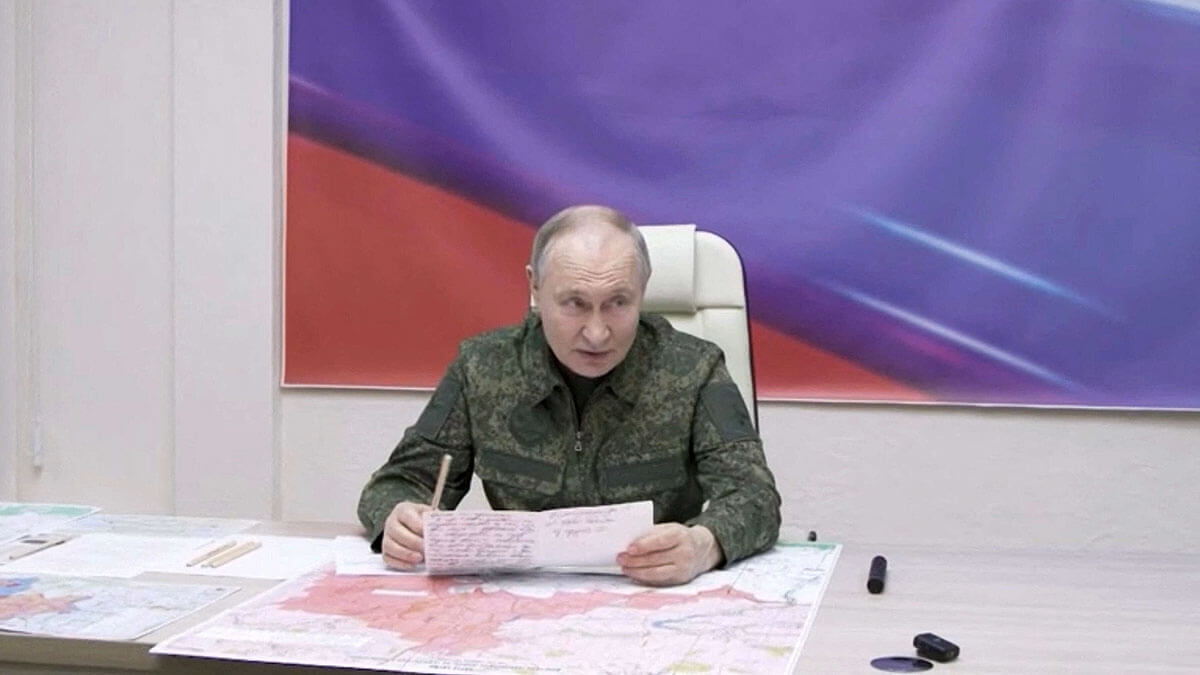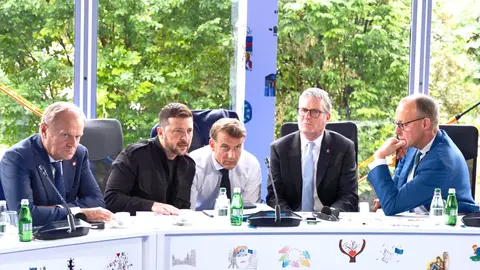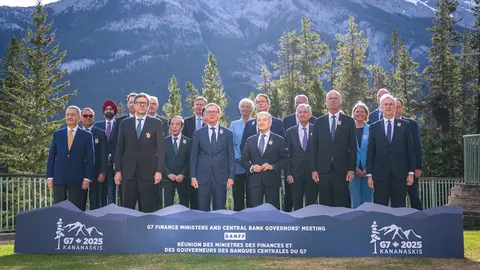Russia and Ukraine resume peace talks in Istanbul

Russia and Ukraine will meet face to face again on Monday in Istanbul for a new round of direct negotiations, the second since large-scale war broke out in 2022. Despite diplomatic efforts in recent months, both sides arrive with firmly opposed positions and no concrete progress indicating a possible resolution to the conflict, the most serious in Europe since the Second World War.
The meeting will be marked by growing tension following an attack by Kiev inside Russian territory. In a secret operation known as ‘Operation Spider's Web,’ Ukraine managed to damage around forty Russian strategic bombers stationed at air bases located more than four thousand kilometres from the Ukrainian border.
The strike, which is estimated to have cost Russia around seven billion dollars in damages, was carried out using 117 drones launched from mobile roofs hidden in wooden huts transported by trucks. The devices were deployed from the vicinity of an FSB office, the Russian intelligence service.
This attack, personally supervised by President Volodimir Zelensky after more than a year and a half of preparation, has been described as one of the most significant to date and comes just after an intense Russian air offensive on Ukrainian territory.
According to the Ukrainian air force, Moscow launched 472 drones and seven missiles, the largest number recorded since the start of the invasion. Kiev also reported the death of at least 12 soldiers at a military training camp as a result of one of these bombings. The escalation of violence has only added pressure to negotiations marked by strong disagreements between the two sides.
Today, a brilliant operation was carried out. The preparation took over a year and a half. What’s most interesting, is that the “office” of our operation on Russian territory was located directly next to FSB headquarters in one of their regions.
— Volodymyr Zelenskyy / Володимир Зеленський (@ZelenskyyUa) June 1, 2025
In total, 117 drones were used in… pic.twitter.com/tU0SMN9jdB
However, despite the gravity of the situation, the delegations have decided to continue talks, seeking to find common ground on the possibility of a ceasefire and a lasting political solution. In the first round held last month, the parties only managed to agree on a prisoner exchange and the exchange of preliminary proposals on what each considers a viable solution to the conflict. This time, Russia has announced that it will present a ‘memorandum’ with its conditions for peace, although it has refused to send its demands in advance, despite Ukraine's insistence.
Moscow insists on addressing what it calls ‘the root causes of the conflict,’ a term that usually encompasses demands such as the reduction of the Ukrainian army, Kiev's renunciation of joining NATO, and the acceptance of territorial losses in the east and south of the country. These demands have been flatly rejected by Ukraine and its Western allies, who accuse Russia of carrying out an imperialist invasion and attempting to redraw borders by force.
Ukraine today carried out one of the most impressive and significant operations of the war, with cargo containers outside of several airbases across Russia opening to reveal dozens of remote-controlled fpv drones which were used to target military aircraft at each of the bases.… pic.twitter.com/185L1V5dOY
— OSINTdefender (@sentdefender) June 1, 2025
For his part, Zelensky has publicly reiterated his position ahead of the meeting: he is demanding a total and unconditional ceasefire, the release of prisoners and the return of Ukrainian children kidnapped by the Russian authorities. He also expressed his desire to hold a direct meeting with Vladimir Putin, asserting that the key issues of the conflict can only be resolved at the highest level. However, the Kremlin has repeatedly rejected this scenario, arguing that there can be no meeting between the leaders until a broader agreement has been reached between the delegations.
The figures at the forefront of the negotiations reflect the antagonistic positions between the two governments. The Russian delegation will be led by Vladimir Medinsky, an ideological adviser close to Putin, author of textbooks justifying the invasion and who has even questioned Ukraine's right to exist as an independent state.

On the Ukrainian side, the table will be led by Defence Minister Rustem Umerov, considered a pragmatic and skilful negotiator, although he has recently been embroiled in an internal scandal involving allegations of abuse of power and lack of transparency in his management. Diplomatic advisers from Germany, France and the United Kingdom are expected to attend as observers and will work closely with the Ukrainian team on the ground.
The international community is watching this new round of talks with caution, especially in light of statements by US President Donald Trump, who has threatened to withdraw from the process if no tangible progress is made in the upcoming meetings.










